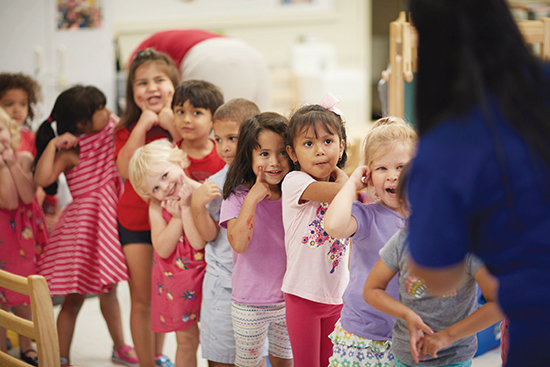(Family Features) There’s nothing like a major milestone in a child’s life to test a parent’s confidence. Big changes like a new school or classroom can be trying for kids and adults alike, but tackling the transition a little at a time can make it easier on everyone.
Most parents agree that being confident is important, but only about 1 in 3 parents feels confident on a typical day, according to KinderCare’s Parent Confidence Report. However, experts say your own feelings can impact youngsters.
Whether your child is making a big change like stepping up from pre-K into kindergarten or entering a new grade in the same building, there’s likely to be some trepidation. However, each child is different, which means reactions to change can vary.
Some kids show up ready and raring to go, eager to explore and meet new friends, while others can be a little clingy, tearful or even refuse to look at the teacher or take a step through the door.
If you think your child might have trouble making the transition, consider these strategies from the experts at KinderCare to help ease both of you into a more comfortable place and build confidence for a successful school year.

- Set up classroom visits before school starts. Sometimes fear comes from the unknown. By visiting ahead of time and seeing firsthand, your child can become familiar with the layout of the classroom, meet the teachers and know what to expect, which can help alleviate some of the anxiety and jitters.
- Talk with your child’s teacher about the transition. Your child’s teacher should be your partner, so be open and honest from the start. Talk about how your child handles change, what causes stress or what behaviors the teacher might expect. Don’t be afraid to call and ask for updates on your child to see how things are going. Set up regular check-ins over the next few weeks to talk about any additional support your child may need.
- Avoid sneaking away from your child at drop-off. Talk about what will happen ahead of time and create a consistent and predictable drop-off ritual, such as two high-fives, a hug and a wave from the window, to ensure your child feels secure and safe. Continue this routine every day to help your child get used to the classroom environment and make sure the process is a quick, happy one. While you’re typically welcome in most classrooms, lingering too long can make it harder on your child once you do leave.
- Be enthusiastic. Just like laughter, excitement is contagious. Rather than focus on nerves or uncertainty, share your own memories from school including how you felt at the beginning of a new school year and the excitement of learning and meeting new friends, which can help your child get hyped up, too.
- Set up a work station at home. Creating a designated space at home for your little learner to do homework, read, write, draw and complete art projects can help set him or her up to develop good study habits. Stock this station with colored paper, crayons and markers, pencils, glue sticks, scissors, books, stickers and other necessary tools, and leave room for stowing a backpack. Encourage your child to spend time working on educational endeavors in the space each night.
View the full Parent Confidence Report and find more advice to help ease your child’s way into the school year at KinderCare.com.







